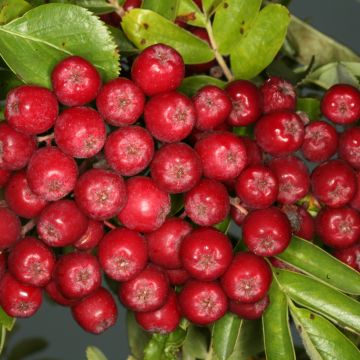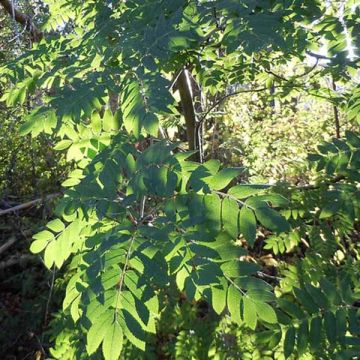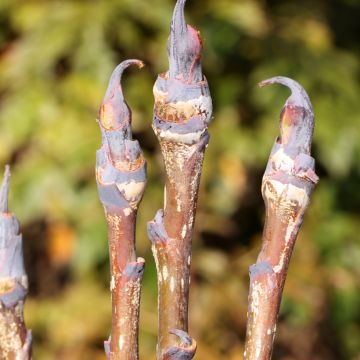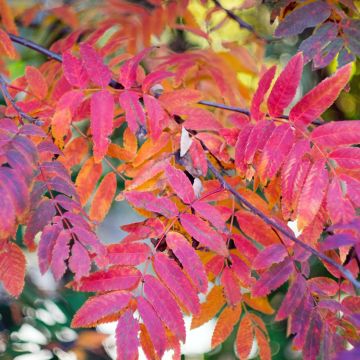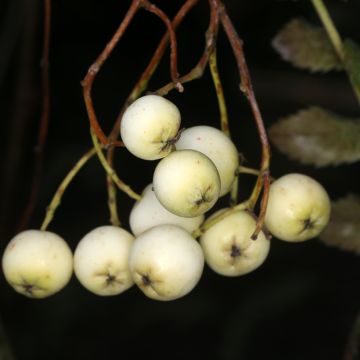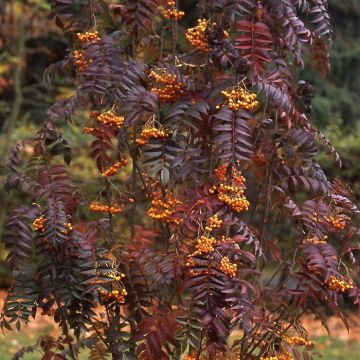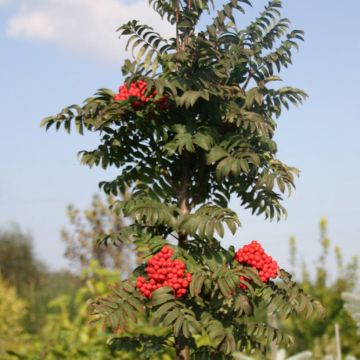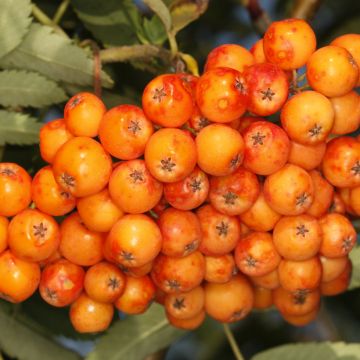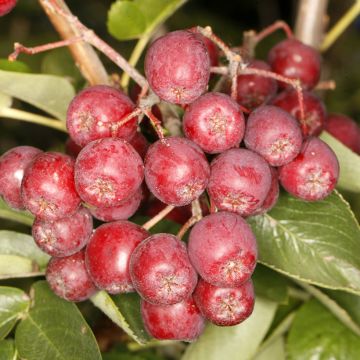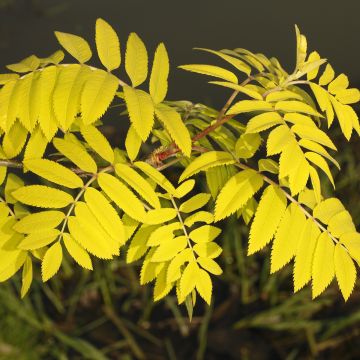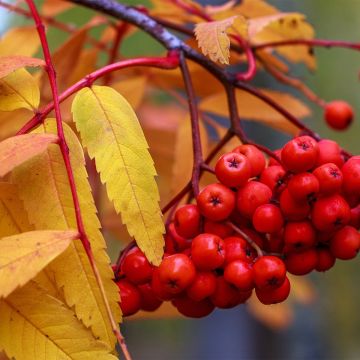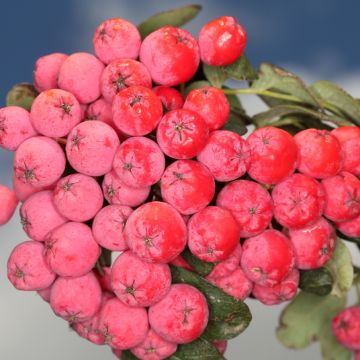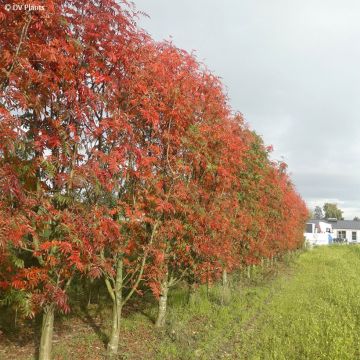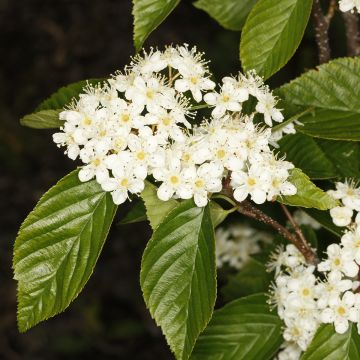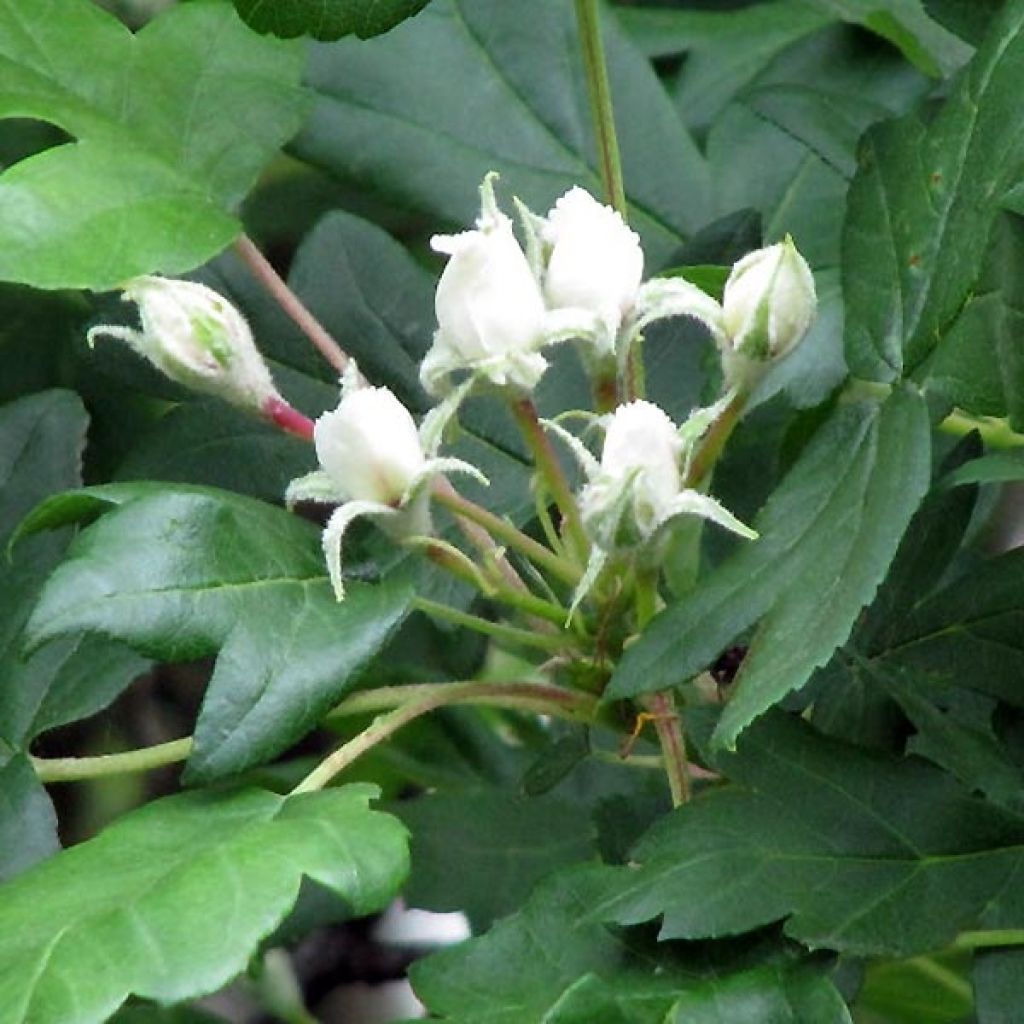

Sorbus torminalis - Alisier des Bois
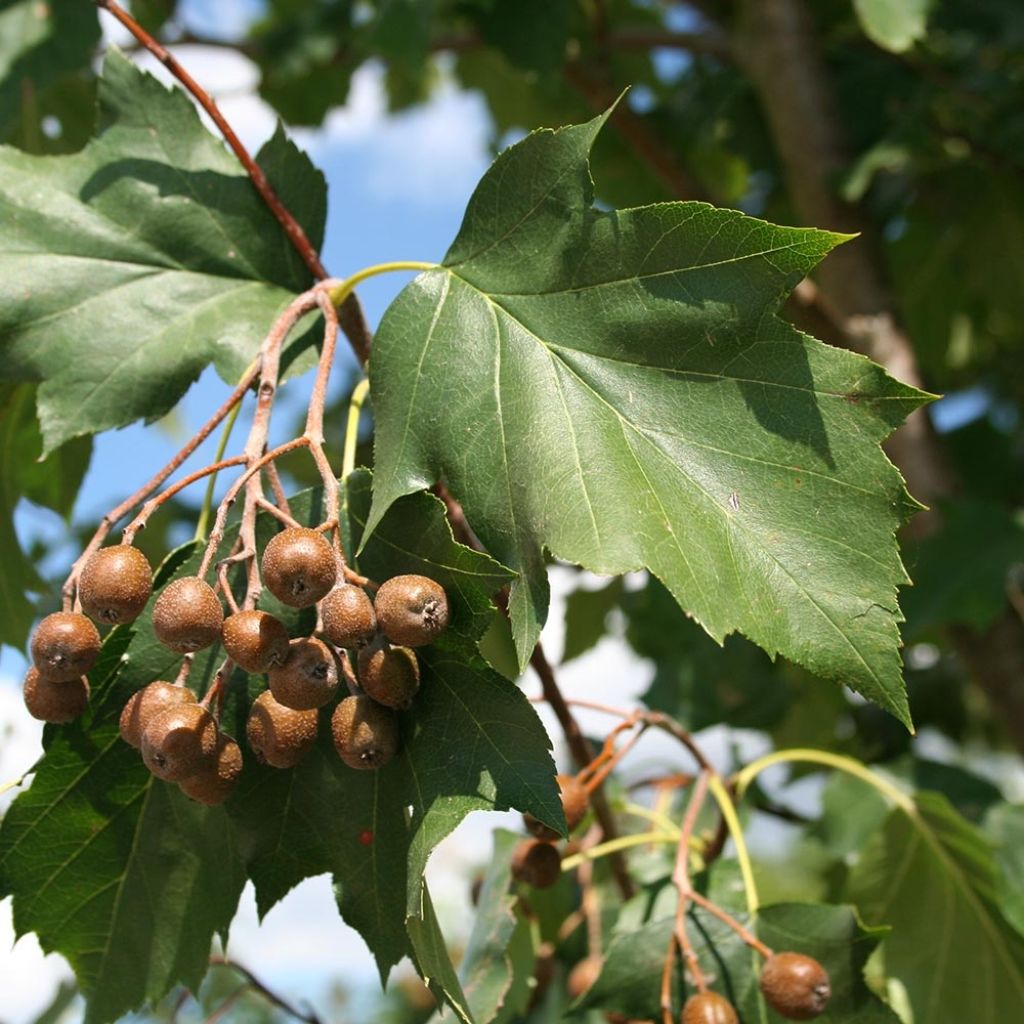

Sorbus torminalis - Alisier des Bois
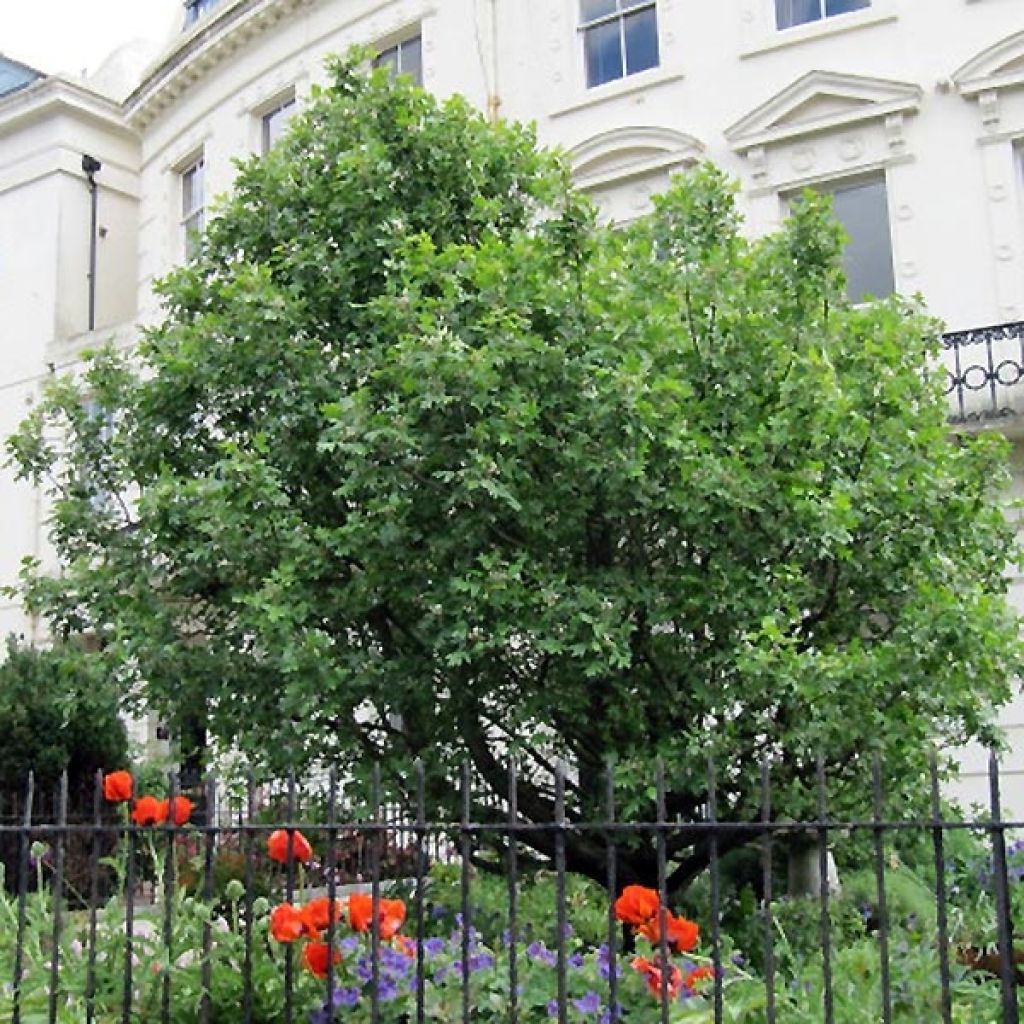

Sorbus torminalis - Alisier des Bois
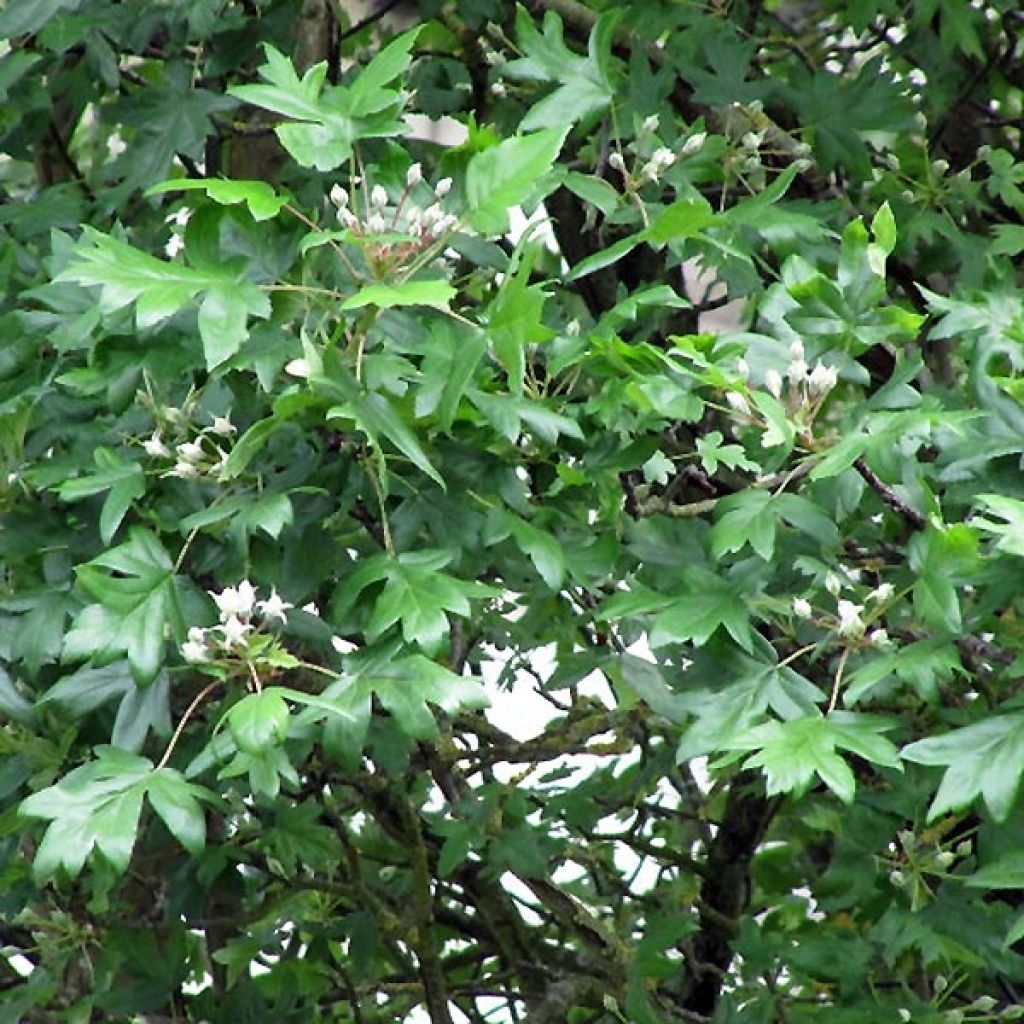

Sorbus torminalis - Alisier des Bois
Sorbus torminalis
Sorbus torminalis
Wild Service Tree, Chequers
Special offer!
Receive a €20 voucher for any order over €90 (excluding delivery costs, credit notes, and plastic-free options)!
1- Add your favorite plants to your cart.
2- Once you have reached €90, confirm your order (you can even choose the delivery date!).
3- As soon as your order is shipped, you will receive an email containing your voucher code, valid for 3 months (90 days).
Your voucher is unique and can only be used once, for any order with a minimum value of €20, excluding delivery costs.
Can be combined with other current offers, non-divisible and non-refundable.
Why not try an alternative variety in stock?
View all →This plant carries a 24 months recovery warranty
More information
We guarantee the quality of our plants for a full growing cycle, and will replace at our expense any plant that fails to recover under normal climatic and planting conditions.
Would this plant suit my garden?
Set up your Plantfit profile →
Description
The Sorbus torminalis, or Wild Service Tree, is a beautiful bush that is still relatively unknown to gardeners. This deciduous tree of large size is recognised by its simple and glabrous leaves, resembling maple leaves with their spread-out shape and pointed lobes. Shiny green, they turn orange-red to purple in autumn. In May, the branches are covered with bright white flowering, which is attractive to bees. It is followed by fruiting in clusters of oval reddish-brown fruits, highly appreciated by birds. This bush, with a rounded habit, reaches about 15 metres (49 feet) in height at maturity. Very hardy, resistant, and tolerant to summer drought, it is an excellent ornamental tree that will look great as a standalone in a medium to large garden.
The Sorbus torminalis belongs to the family of rosaceae. This shade-tolerant species, native to wooded areas of Europe, Africa, and Asia Minor, is also known as the Wild Service Tree. Despite its many qualities, it is still relatively rare in gardens. Indeed, it is a perfectly hardy plant. It develops a fairly short vertical trunk, topped by an open and oval to rounded crown. With moderately fast growth, it will reach between 15 and 20 metres (49 and 66 feet) in height and 8 to 10 metres (26 to 33 feet) in width at maturity. The foliage is deciduous and falls in autumn. The simple leaves, composed of 5 to 9 dentate and pointed lobes, measure 6 to 10 cm (2 to 4in) in length and are carried on long petioles. They are shiny dark green, turning yellow-orange to red-purple in autumn. In May, numerous small white flowers appear in clusters. The creamy-white flowers, with numerous stamens, are highly appreciated by pollinating insects. At the end of summer, they give way to ovoid fruits, brown to reddish-brown when ripe, which remain decorative until winter. The berries, about 1.5 cm (1in) in length, bring joy to birds and small mammals, but are also edible for humans. The bark of this Sorbus is smooth and greyish with clear lenticels, which peel off with age.
This lovely Wild Service Tree, with moderate growth, is well suited for medium to large gardens. Plant it in any soil, from moist to dry, acidic, neutral to alkaline. It will thrive in both full sun and partial shade, but will have more vigorous growth in fertile and deep soil. It has a powerful root system that makes it particularly resistant to strong winds, unlike other species of Sorbus. This beautiful tree has no specific requirements. It will look great as a standalone or in a group, but can also be used as a living hedge, alongside other autumn foliage species such as Prunus, hazelnuts, caramel tree, parrotia, or maples. This long-lived species can live up to 200 years.
Good to know: Sorbus means "to drink" in Latin, alluding to the fruits of the type species which are very astringent and make you thirsty. The wood of the Wild Service Tree is very fine and is used in cabinet-making and turning.
Report an error about the product description
Sorbus torminalis in pictures
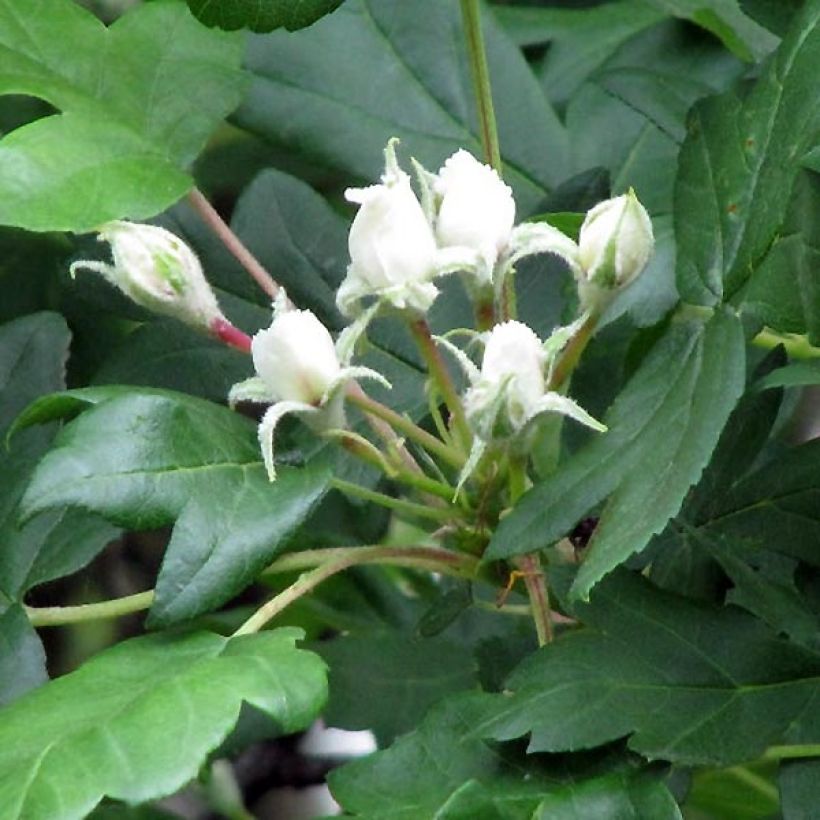

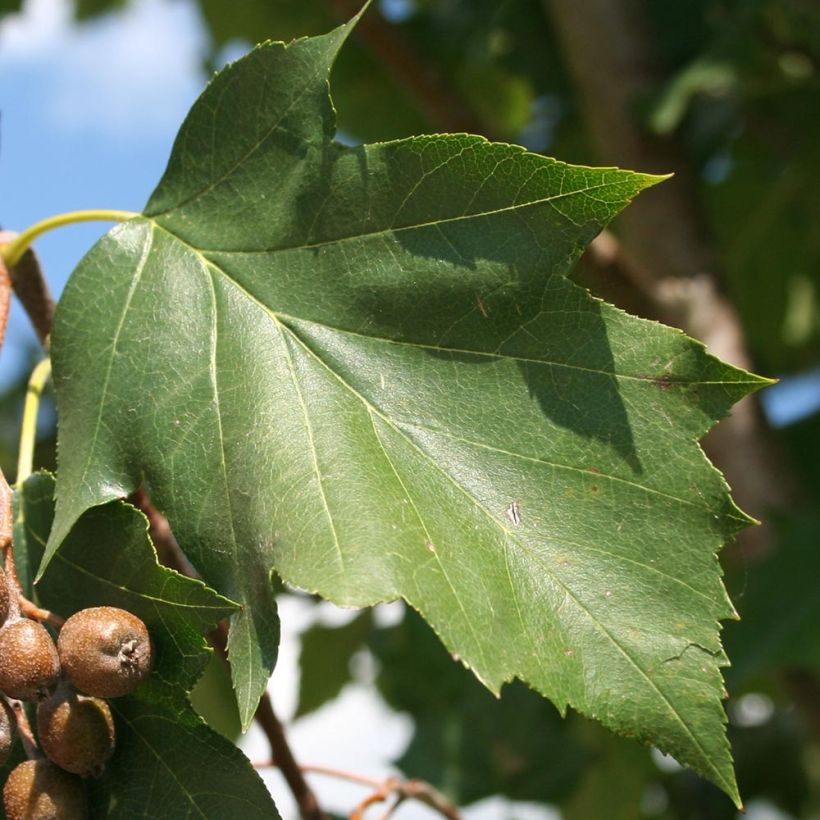

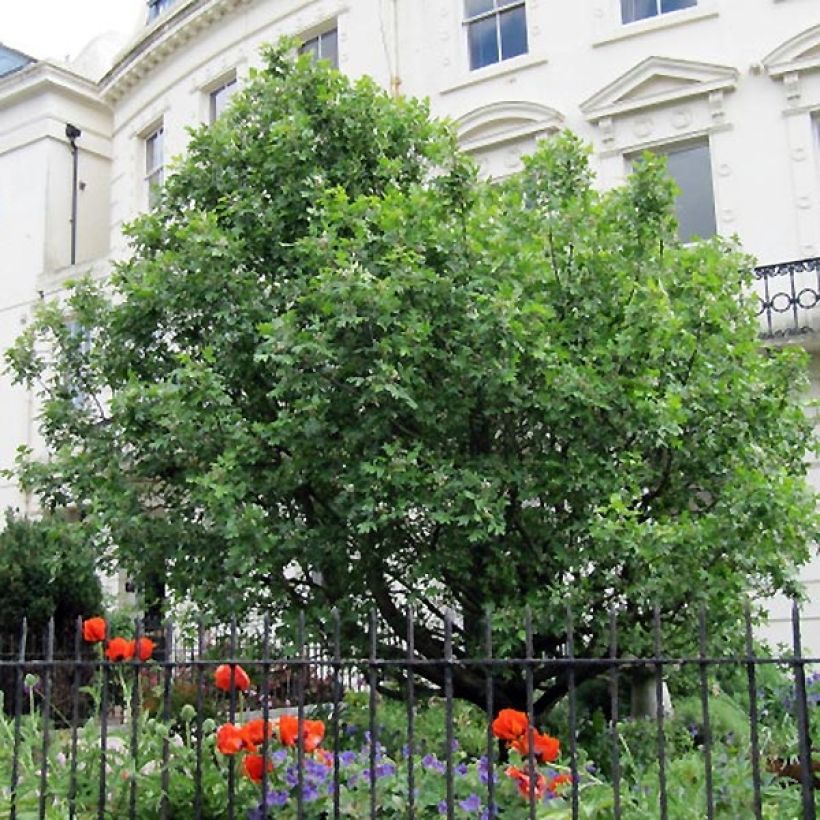

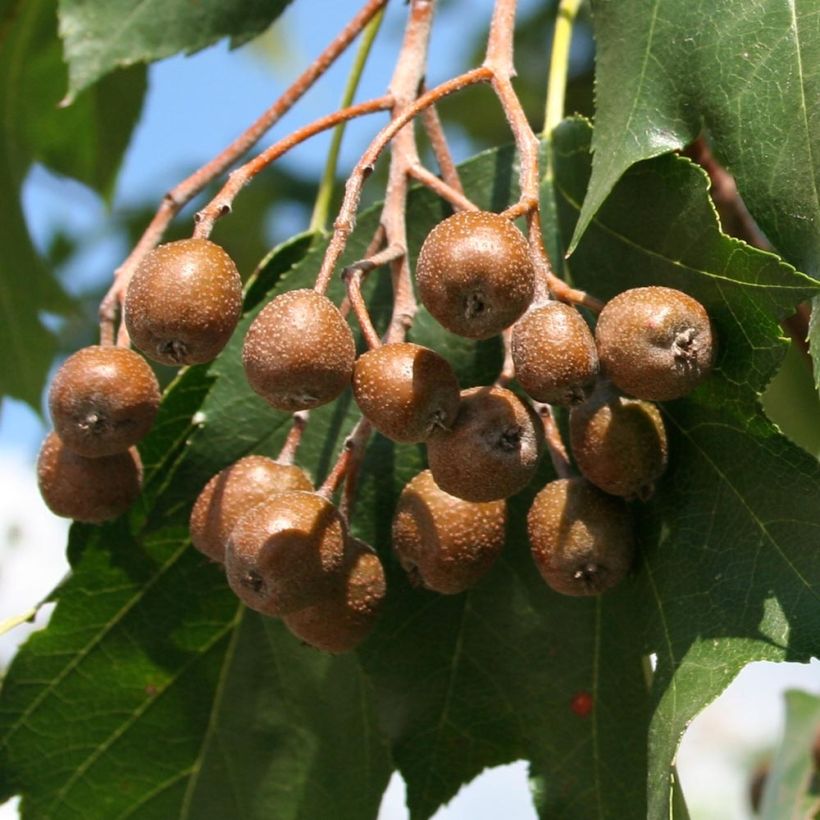

Plant habit
Flowering
Foliage
Botanical data
Sorbus
torminalis
Rosaceae
Wild Service Tree, Chequers
Northern Europe
Other Sorbus - Mountain Ash
View all →Planting and care
Plant the Wood Service Tree in any soil, from moist to dry, acidic, neutral to alkaline. It will thrive in both full sun and partial shade. This small tree has no particular requirements. As its roots are deep, it is advisable to plant it away from buildings, walkways, and terraces. If necessary, perform pruning before the start of the growing season by removing diseased or dead wood and crossing branches. Sometimes aphids, red spiders, or scale insects can attack. These trees may also be susceptible to canker, rot, and fire blight.
Planting period
Intended location
Care
This item has not been reviewed yet - be the first to leave a review about it.
Haven't found what you were looking for?
Hardiness is the lowest winter temperature a plant can endure without suffering serious damage or even dying. However, hardiness is affected by location (a sheltered area, such as a patio), protection (winter cover) and soil type (hardiness is improved by well-drained soil).

Photo Sharing Terms & Conditions
In order to encourage gardeners to interact and share their experiences, Promesse de fleurs offers various media enabling content to be uploaded onto its Site - in particular via the ‘Photo sharing’ module.
The User agrees to refrain from:
- Posting any content that is illegal, prejudicial, insulting, racist, inciteful to hatred, revisionist, contrary to public decency, that infringes on privacy or on the privacy rights of third parties, in particular the publicity rights of persons and goods, intellectual property rights, or the right to privacy.
- Submitting content on behalf of a third party;
- Impersonate the identity of a third party and/or publish any personal information about a third party;
In general, the User undertakes to refrain from any unethical behaviour.
All Content (in particular text, comments, files, images, photos, videos, creative works, etc.), which may be subject to property or intellectual property rights, image or other private rights, shall remain the property of the User, subject to the limited rights granted by the terms of the licence granted by Promesse de fleurs as stated below. Users are at liberty to publish or not to publish such Content on the Site, notably via the ‘Photo Sharing’ facility, and accept that this Content shall be made public and freely accessible, notably on the Internet.
Users further acknowledge, undertake to have ,and guarantee that they hold all necessary rights and permissions to publish such material on the Site, in particular with regard to the legislation in force pertaining to any privacy, property, intellectual property, image, or contractual rights, or rights of any other nature. By publishing such Content on the Site, Users acknowledge accepting full liability as publishers of the Content within the meaning of the law, and grant Promesse de fleurs, free of charge, an inclusive, worldwide licence for the said Content for the entire duration of its publication, including all reproduction, representation, up/downloading, displaying, performing, transmission, and storage rights.
Users also grant permission for their name to be linked to the Content and accept that this link may not always be made available.
By engaging in posting material, Users consent to their Content becoming automatically accessible on the Internet, in particular on other sites and/or blogs and/or web pages of the Promesse de fleurs site, including in particular social pages and the Promesse de fleurs catalogue.
Users may secure the removal of entrusted content free of charge by issuing a simple request via our contact form.
The flowering period indicated on our website applies to countries and regions located in USDA zone 8 (France, the United Kingdom, Ireland, the Netherlands, etc.)
It will vary according to where you live:
- In zones 9 to 10 (Italy, Spain, Greece, etc.), flowering will occur about 2 to 4 weeks earlier.
- In zones 6 to 7 (Germany, Poland, Slovenia, and lower mountainous regions), flowering will be delayed by 2 to 3 weeks.
- In zone 5 (Central Europe, Scandinavia), blooming will be delayed by 3 to 5 weeks.
In temperate climates, pruning of spring-flowering shrubs (forsythia, spireas, etc.) should be done just after flowering.
Pruning of summer-flowering shrubs (Indian Lilac, Perovskia, etc.) can be done in winter or spring.
In cold regions as well as with frost-sensitive plants, avoid pruning too early when severe frosts may still occur.
The planting period indicated on our website applies to countries and regions located in USDA zone 8 (France, United Kingdom, Ireland, Netherlands).
It will vary according to where you live:
- In Mediterranean zones (Marseille, Madrid, Milan, etc.), autumn and winter are the best planting periods.
- In continental zones (Strasbourg, Munich, Vienna, etc.), delay planting by 2 to 3 weeks in spring and bring it forward by 2 to 4 weeks in autumn.
- In mountainous regions (the Alps, Pyrenees, Carpathians, etc.), it is best to plant in late spring (May-June) or late summer (August-September).
The harvesting period indicated on our website applies to countries and regions in USDA zone 8 (France, England, Ireland, the Netherlands).
In colder areas (Scandinavia, Poland, Austria...) fruit and vegetable harvests are likely to be delayed by 3-4 weeks.
In warmer areas (Italy, Spain, Greece, etc.), harvesting will probably take place earlier, depending on weather conditions.
The sowing periods indicated on our website apply to countries and regions within USDA Zone 8 (France, UK, Ireland, Netherlands).
In colder areas (Scandinavia, Poland, Austria...), delay any outdoor sowing by 3-4 weeks, or sow under glass.
In warmer climes (Italy, Spain, Greece, etc.), bring outdoor sowing forward by a few weeks.






























